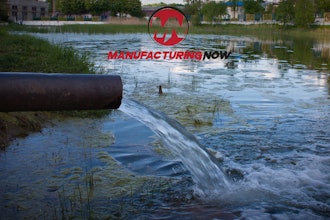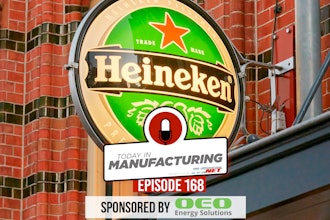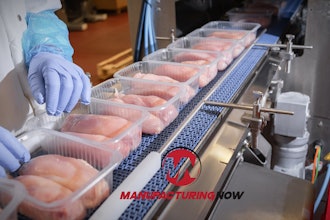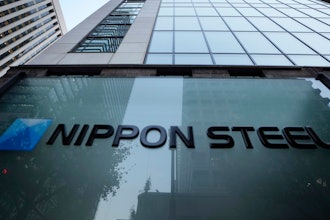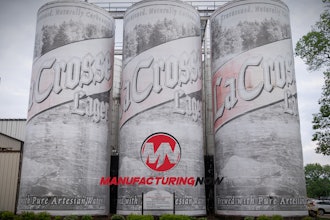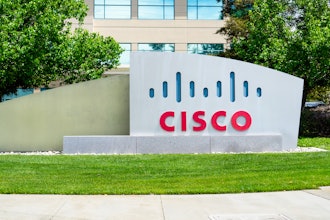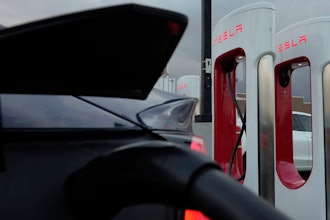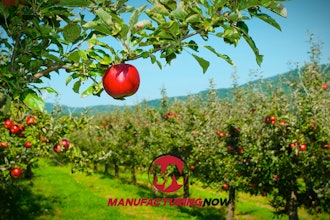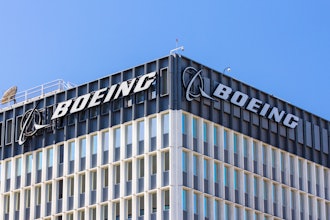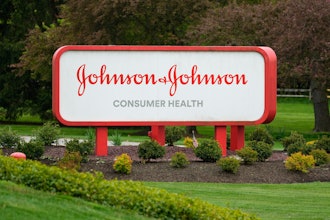Sustainability and the environment are quickly becoming hot trends in product packaging, and some companies are using creative ways to make the industry greener. Food Manufacturingdiscussed the best options for sustainable packaging with Tom Domen of Ecover, a company that has partnered with Braskem to develop a sugar-based plastic.
Q: How are plant-based plastics more effective than those obtained from fossil fuels when if comes to reducing carbon footprint?
A: Both the plant-based and the oil-based plastic will emit more or less the same amount of CO2 during the full material life cycle of processing to disposal. However the fact that the sugarcane has captured CO2 during its growing process makes this plant-based plastic more CO2 efficient. (Plants take up CO2 from the atmosphere as they grow while oil can only release the CO2 it already contains.)
On the other hand, if the plantations use bad practice and burn the fields before harvesting, it has a very negative effect on both the environment and the health of the workers. With the best practice plantations, the sugarcane is all harvested mechanically, and the waste material is then used to recuperate the energy to fuel the rest of the process. The company we work with makes sure they only work with plantations using best practice or are in the process of changing towards best practice.
Q: How have plant-based plastics evolved into a viable option?
A: So far, the plant-based alternatives that were on the market were biodegradable. To use a biodegradable plastic for liquid detergents was technically not yet possible because of compatibility issues. Although the quality of biodegradable plastics is improving, we still feel it is not yet an option. For thicker material like bottles, biodegradability can become tricky. First of all, these bottles cannot be domestically composted. (Imagine the bottles starting to biodegrade on the shelf.) The idea is that these bottles can be collected for industrial composting, which happens under specific conditions using high temperatures. This also means that two separate waste streams have to be set up; one for biodegradable bottles and one for bottles that can be recycled. Mixing the two is not a good idea. For consumers, this just adds confusion. Secondly, you have to ask yourself whether the bottle completely biodegrades. Currently some of the components used to keep the bottle together do not completely biodegrade. What you will see is that the bottle slowly biodegrades, but you won’t see that some very small building blocks stay behind in the environment without being broken down completely.
With this new plant-based material from Braskem, it is the first time we have a plant-based plastic that is compatible with our product and that is also easily recyclable together with the existing packaging. So this helps us avoid the disadvantages of biodegradable plastic.
Q: Plant-based plastics are in competition with food crops for land and water resources. What can be done to mediate this issue when it comes to plastics?
A: We have to work on different levels to make sure this does not become an issue.
- Sugarcane grows on areas that are mostly not suitable for other kinds of food crops. It is also an area where there is no direct conflict with valuable natural areas, like the rainforest.
- A lot of extra volume is still to be gained in efficiency of running the plantation before the need to expand to using more land. This can be done by applying best practice harvesting, but also by using new techniques to extract more ethanol from the sugarcane than is now the case. We can expect a growth of 4 times the current output just by applying best practice.
- By still allowing the bottles to be recycled, you do not create a new demand for new material all the time.
- We should advocate people to reuse their bottles, be it by offering a lightweight refill pack or a larger format. Refill in the store is not yet taking off (yet) in the U.S., but in Europe you do see this more and more. Bottles made from this plant-based plastic can be reused a minimum of 30 times or more, after which they can be recycled.
Q: Why is sugar the most practical solution when it comes to plastic?
A: When we have the option to make plastic from a renewable material, we have to be critical about the type of crop that is used for this and that no additional environmental burden is created. Basically, the ethanol needed to produce the plastic can come from any energy-rich crop like corn, wheat, beet or sugarcane. When comparing these crops, sugarcane is the most energy efficient. The ethanol output from sugarcane will be at least 4 times higher than corn or beet, making it currently the most interesting crop from which to make renewable bottles. New technologies look promising as well, as they focus on improving the efficiency of making ethanol from sugarcane. Ecover uses sugarcane as the raw material for its green plastic, as this is currently the best option. But, notwithstanding, we will always be on the lookout for better alternatives.
Q: Tell me about your partnership with Braskem.
A: In 2007, we started the conversation with Braskem on this new development. At that time, they had made up the plans to start producing this new type of plastic, and we were actively looking for plant-based alternatives for our packaging. Then a long period of testing and investigation started. Apart from the fact that we wanted to make sure that this was technically feasible, we also wanted to understand the total footprint analyses and the food competition danger. Braskem proved to be very open and helpful during this period and provided us and the external company doing the footprint analysis of all the information we needed.
Q: Starting out, Ecover bottles will contain 30 percent sugar cane plastic. Where do you see sugar plastic going in the future? Will you eventually be able to product 100 percent sugar plastic?
A: It is possible already to use 100 percent sugarcane based plastic for bottles. Ecover has chosen the most effective route to delivering sustainable packaging to our consumers without having to pass on huge price increases. On the other hand, we are constantly investigating other packaging options using recycled materials and to use 100 percent Braskem at this early stage would block any other avenues to creating a truly sustainable, refillable and recyclable product in the near future.
___
Interview By Lindsey Coblentz, Associate Editor, Food Manufacturing








